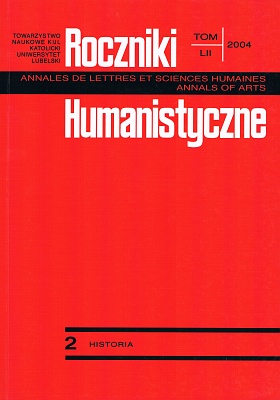Instytucje i urzędy odpowiedzialne za realizowanie polityki antyreligijnej na Ukrainie w latach 1943-1964
Abstrakt
Denominational policies in the USSR that defined the state's attitude towards religion and denominational organizations, was regulated by decrees and constitutional laws. From the very beginning legal acts evolved towards making the anti-religious laws more rigorous. They were concerned with limiting the rights of people and institutions. The State established several offices to implement such policies – beginning from the central level where the policies were created: the Council for the Orthodox Church and the Council for Religious Denominations, through the office of the Plenipotentiary for Religions in particular republics and districts where the policies were coordinated, down to particular areas and villages where Cooperation Commissions applied the laws in practice.
Each religious event focused the authorities' attention, making all the institutions that were supposed to oppose them ready to act – and that concerned the press, the radio, Culture Departments, Cooperation Commissions. The Commissions were not only established in each area but in each village. Practically all the people who showed any interest in religious matters were controlled. Employees of the Party and Comsomol organizations, of education, health and culture departments, of the taxation authorities, as well as retired people etc., were made members of the commissions. Each member was delegated to supervise one of the existing religious organizations. The work of the cooperation commissions was consulted with the scientific-atheist sections of the Society for the Propagation of Sciences and Lay Culture. All the Church's faults were publicized in the local and district press in order to make believers break with religion. Moreover, in districts, towns and villages commissions were established that propagated introduction of lay ceremonials into everyday life.
Copyright (c) 2004 Roczniki Humanistyczne

Utwór dostępny jest na licencji Creative Commons Uznanie autorstwa – Użycie niekomercyjne – Bez utworów zależnych 4.0 Międzynarodowe.





